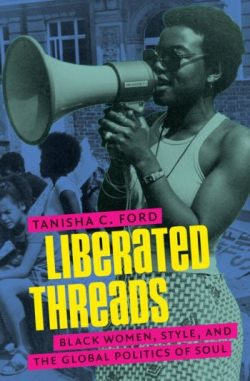
A rising star in academia, Ford has been lauded by scholars such as Dr. Tiffany Gill of the University of Delaware for writing a compelling book that offers a “rare and much-needed window into the activism and experiences of Black women in the United States and abroad.”
Liberated Threads provides a chronology of how “soul” expressed by Black women in the form of dress and fashion was neatly aligned with their work as activists.
“I want people to be able to have a language to talk about why Black culture is globally popular,” said Ford in an interview with Diverse. “Why is this the case? How did it happen and why?”
The book, which grew out of her doctoral dissertation, was inspired by her parents — particularly her mother — who enrolled at Indiana University as a college student during the 1970s when the Black Power movement was at its height in the United States.
As Ford notes in the fourth chapter of her text, which focuses on the soulful styles of Black college students, African-American women — like her mother — were using their hairstyles and their dress as political statements even as they were staging sit-ins at the president’s office or protesting White fraternities and sororities that engaged in discriminatory practices.
“The clothing was instrumental in saying, ‘Hey, I’m here on this campus,’” says Ford, who also earned her undergraduate and graduate degree from Indiana University. “[The women] would decorate their dorm rooms in a way that says, ‘I’m proud of my African heritage.’”















